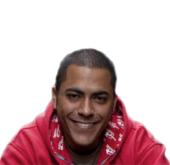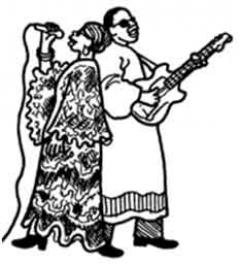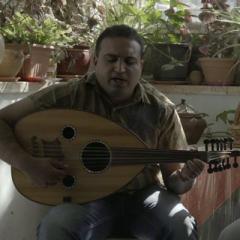Your progress
0%
The activities below represent some strategies your organization can use to support the participation of people with disabilities in culture and the arts in the communities you serve.
Use your mouse or keyboard to expand each of the activity headings below. To add an activity to your action plan, select the Add button beside it.

Disability advocacy and awareness campaigns are often more effective when based on locally relevant cultural and artistic media. Because of this, CBR should use these media to achieve social change for disability. Organizations can:
Learn about how two successful musicians use their talents to highlight disability issues.


Amadou and Mariam are two internationally recognized and influential mainstream musicians from Mali. They have used their talents to highlight disability issues and challenge stereotypes. They invest in cultural training programmes for youth with disabilities to ensure they have the opportunities to develop their skills and talents and follow their dreams and aspirations.
It is important to remember that many families of people with disabilities may have lost the confidence to attend cultural events due to fear of stigma and discrimination. They may feel embarrassed, ashamed or unwelcome at weddings, religious services, restaurants and cinemas. To provide support for families, CBR can:
CBR can encourage people with disabilities to participate by:
Mainstream organizations that offer cultural and artistic programmes and activities may feel that they don’t know how to include people with disabilities. CBR can help these organizations to be more inclusive and accessible to people with disabilities. CBR can,
The following are two examples of how in Palestine people with disabilities were included in their community’s mainstream programmes.
Read about how a summer camp in Palestine included children with disabilities.


A small initiative was started by CBR programmes in Palestine in 2000 to include children with disabilities in summer camps. This initiative has become very successful and it is now standard. Youth leaders of these camps have started to include children with disabilities in other mainstream programmes throughout the year. For example, a production of Cinderella cast a girl with a disability to play the lead role. This not only challenged stereotypes and increased awareness of disability in the community it also provided a positive role model for young people with disabilities.
Watch a video about how the support of CBR in Palestine helped a boy develop his musical talents and become more accepted in society.

After you have viewed these two case studies, what are some things from the stories that you did not expect? Enter your thoughts in the box below, and select Save when you are finished.

Spiritual and religious leaders can be powerful advocates for social change. It is important for CBR to work with religious leaders and members of all faiths within the community to promote the inclusion of people with disabilities in their activities. CBR can: